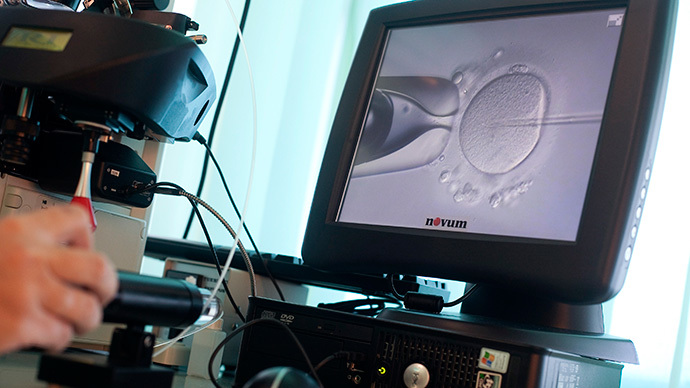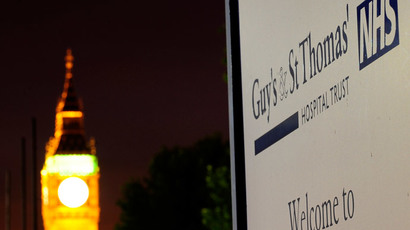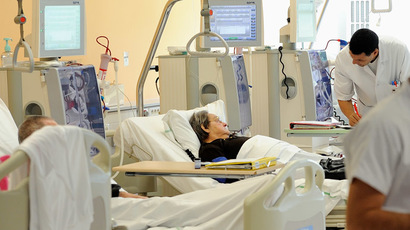British clinics forced to import sperm due to 'major shortage'

The UK is facing a ‘”major” sperm shortage, and fertility clinics are being forced to either import it from abroad or use low quality sperm, the British Fertility Society (BFS) warns.
The crisis was partly caused by donors' right to anonymity being
removed in 2005. Additionally, the demand for donors has been
falling due to advances in fertility treatment which allow more
men with substandard sperm to father their own children.
But figures from the Human Fertilization and Embryology Authority
(HFEA) show that nearly one in four donated sperm samples comes
from abroad. In 2005, that figure was one in 10.
The head of the BFS, Dr. Allan Pacey, said he is worried that
some clinics might be accepting low quality sperm just to
“get donors through the door.”
“The worry is clinics might decide to change the quality of
sperm they are willing to accept in order to get donors through
the door and I think that’s a very dangerous road to go
down,” he told the BBC.
He added that this may result in women being subjected to more
invasive and expensive techniques. One example of this is sperm
being accepted that would be suitable only for injecting into an
egg – known as “intra-cytoplasmic sperm injection” –
rather than for artificial insemination.
“That is putting the woman through more procedures, in terms
of eggs being collected, than would be done if sperm of a higher
quality was collected and she could be treated with a simple
insemination,” said Dr. Pacey.
He added that he is concerned that in light of the national sperm
shortage, clinics may be tempted to bend the rules – although he
added he has “no evidence that they are.”
Professor Yakoub Khalef of the assisted conception unit at Guy’s
Hospital in London also said that his department is “now more
reliant on external sperm banks than ever before.”
But a HFEA spokesman denied that patients are at risk.
“We expect our clinics to use only donor sperm of a quality
that will ensure the best outcome for the patient, and under our
code of practice clinics are required to fully inform patients of
the different treatment options available to them.”














